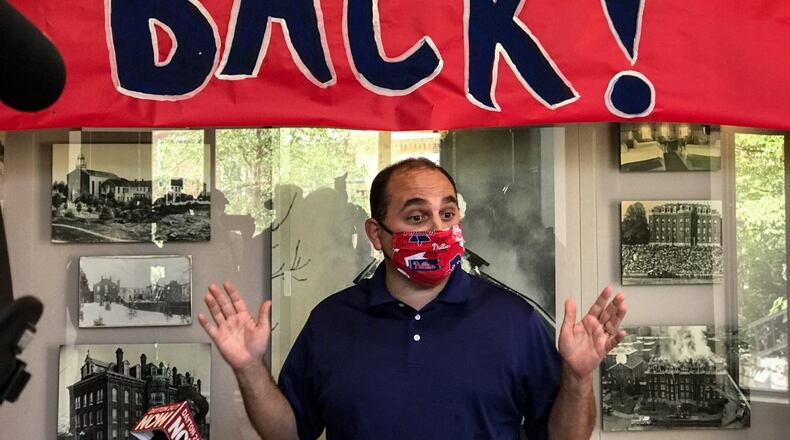A recent study from McKinsey and Company reported that the learning loss during the shutdown could exacerbate achievement gaps and have a long-term impact on the U.S. economy.
It’s imperative to help our students regain their learning loss.
Credit: EASTERLING STUDIOS
Credit: EASTERLING STUDIOS
However, it’s just as important for us to help our students deal with the emotional difficulties of the shutdown.
The feelings of isolation from friends, lack of routines and accountability led many students into more anxiety, stress and demotivation.
I know first hand that without mental health, students cannot do their best work. If school districts don’t prioritize mental health, then they will put their students at even greater risk of falling behind.
Gov. Mike DeWine released five guidelines for K-12 reopening this fall on July 1, one of which was requiring face masks for school staff and students in grades 3 and higher.
“It's imperative to help our students regain their learning loss.
However, it's just as important for us to help our students deal with the emotional difficulties of the shutdown."
He cited consensus from educators and parents that children need to return to the school buildings.
Likewise, he affirmed his decision citing an American Association of Pediatrics recommendation that the developmental risks of kids missing school were greater than the risks of COVID spread with them being in school, since there’s a lower risk of COVID-19 for children.
As long as a county does not reach the highest Public Health Advisory Alert zone, most students will likely have some form of in-person classroom learning.
Districts will have control over all other decisions, within the five school guidelines set by DeWine. Districts, even within the same county, may have very different variations of remote and/or in-person learning.
The masks that educators and students wear in the schools will visibly show that we are meeting our obligation to educate our children and keep them safe.
I urge our educators to also take care to acknowledge and support the invisible toll that the quarantine has taken on our mental health.
DeWine expressed that he’s working with the legislature to provide funding to schools through the CARES ACT to help with masks, sanitizers and other steps that meet the five school guidelines recommended.
Thus, schools will get funding for all the necessities for reopening. However, our schools will also need additional funding for mental health services. These services should include expanded support for all students, with both individual and group offerings, in the school building and online.
The first days of school must focus on a re-orientation and transition for all students which formally includes mental health support and services. Without these mental health measures, learning is impossible.
Ideas and Voices runs daily in the Dayton Daily News. Send comments and suggestions to edletter@coxinc.com or contact Community Impact Editor Amelia Robinson at arobinson@DaytonDailyNews.com.
Posted by Amelia Robinson on Tuesday, June 23, 2020
Pamela Ellis is CEO and Founder of Compass Education Strategies, which supports schools with college readiness, freshman transition and family engagement.
About the Author

